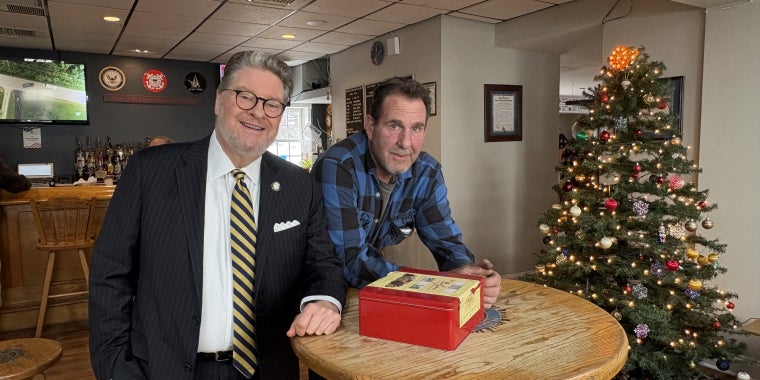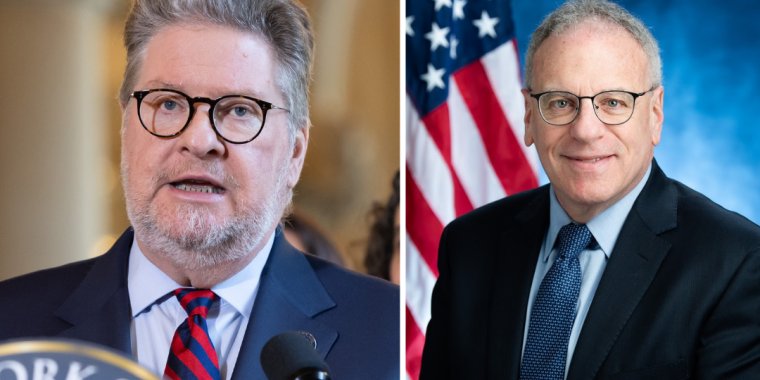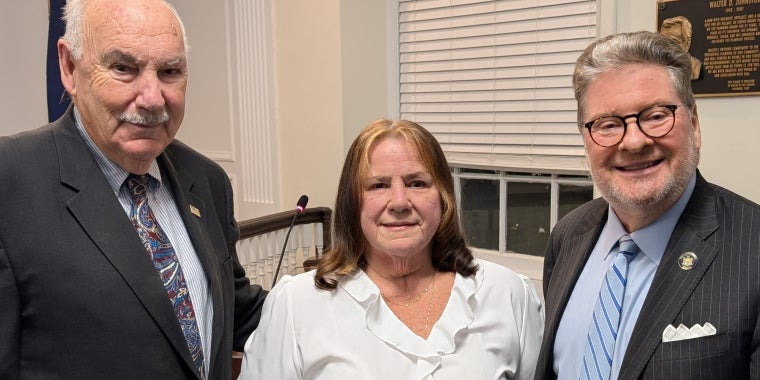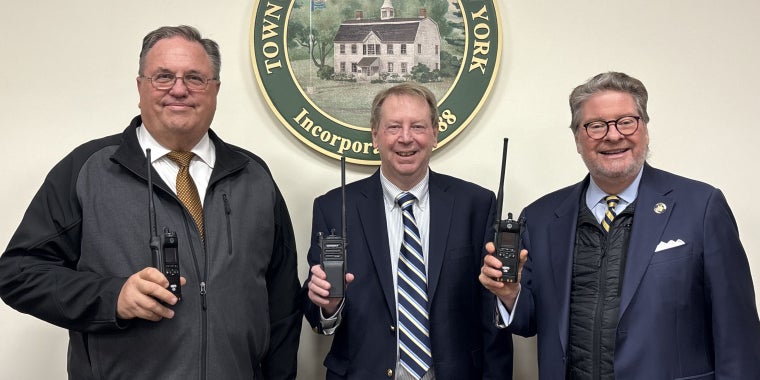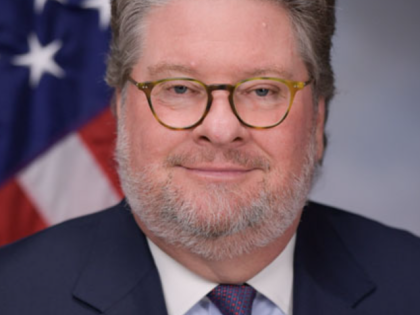
Harckham, Senate Pass One-House Budget Resolution for FY2024-2025
March 15, 2024
-
ISSUE:
- Senator Harckham. SD40
- 2024 Senate One-House Budget Resolution
- 2024-25 State budget; education aid
- Affordability
- Road Safety; Infrastructure; Highway Safety

Sen. Harckham speaking on the Senate floor
Albany, NY – New York State Senator Pete Harckham and members of the Senate passed the one-house budget resolution today, which will deliver aid to help New York residents with school funding, infrastructure investments with an emphasis on road safety and support for environmental protections and climate change goals.
“The Senate’s one-house budget resolution stands as a significant investment in New Yorkers and our communities, the decision-making driven by our shared values and focus on affordability and growing prosperity,” said Harckham. “By requiring those top-earners to pay more of their fair share, we will be able to continue to fully fund education and even increase our investments for students, protect our environment while fighting the climate crisis and give a much-needed pay boost to those who are taking care of the most vulnerable in New York.”
Harckham spoke on the Senate floor today in support of the one-house budget resolution; to see a video clip of his speech click here.
The Senate one-house budget resolution:
- Restores full funding for Foundation Aid and adds $747 million to education funding, resulting in a minimum 3% increase for all school districts;
- Adds $150 million for universal pre-kindergarten and $125 million for universal school meals;
- Adds $400 million for core highway funding for a total of $3 billion, with a $100 million going Region 8 (Hudson Valley) to compensate for past underfunding.
- Restores cuts and added $160 million to the Consolidated Local Highway Improvement Program (CHIPS) for a total of $698.1 million;
- Restores $250 million for the Clean Water Infrastructure Act with $15 million dedicated to Per- and Polyfluoroalkyl Substances (PFAS), and including an additional $100 million for the Safe Water Infrastructure Program;
Reverses cuts to the Environmental Protection Fund.
A number of initiatives in the one-house resolution stem from legislation introduced by Harckham, including bills to, respectively, establish fees for environmental violations; allow medically fragile residents to stay in certain care facilities until they are 37; give due process protections to health care providers during Office of the Medicaid Inspector General audits; and help create affordable housing by providing incentives to municipalities to legalize accessory dwelling units and giving tax exemptions to homeowners.
The Senate proposal also includes a 3.2% COLA increase across the state’s health agencies, which Harckham, the former chair of the Senate Committee on Alcoholism and Substance Abuse, has long advocated for to help mitigate staffing shortages.
Some highlights of the Senate one-house budget resolution, by category:
Education
- $5 million to combat anti-Semitism, Islamophobia and Anti-Asian hate in schools;
- $5 million in additional support for afterschool programs, for a total of $105.7 million;
- Restored $1.7 million of funding for Cornell Cooperative Extension programs;
- $4.5 million for ELL (English language learner) assessments for students with disabilities;
- Restored $1.9 million of funding for the Center of Excellence (COE), for a total of $14 million;
- $13.4 million in Bundy Aid for independent colleges and universities.
Roads and Infrastructure
- $50 million in additional support for Extreme Winter Recovery, for a total of $150 million;
- $79.6 million in additional support for Statewide Mass Transportation Operating Assistance for non-MTA transit systems, for a total of $5.2 billion;
- Requirements that all public transit operators receive state assistance to purchase only zero-emissions buses and related equipment;
- $20 million for high-speed broadband internet access in temporary housing facilities.
Environment and Climate Goals
- $100 million Safe Water Infrastructure Action Program;
- $12.5 million Harmful Algal Bloom Grant Program;
- Restored full funding—$7.5 million—for the Hudson River Estuary Management Program;
- $600K to establish a new Office of Flood Control;
- Expands maximum credit for geothermal energy systems to $10K and makes the credit refundable for low- and moderate-income residents in disadvantaged communities.
Keeping New Yorkers Healthy
- Adds $1 billion to restore funding for the State Medicaid program, which includes funding for hospitals, nursing homes and managed long-term care
- $10 million added to support a medical debt forgiveness pilot program;
- $1.25 million for the NYS Alliance of Boys & Girls Clubs nutrition initiative;
- 25% Medicaid rate increase for community health centers (CHCs) and implementation of a CHC rate reform;
- $2.5 million for the United Way Preventative Care Access initiative;
- $10.4 million for the NYS Occupational Health Clinic Network (OHCN);
- $35 million for the National Institute of Reproductive Health (NIRH) to seed the Reproductive Freedom and Equity Program through the NYS Department of Health;
- Adds $190 million to support wage enhancements of $2K for Direct Service Professionals making up to $75K.
Keeping New Yorkers in Their Homes
- Extension of the real property tax relief credit for three years and expanding eligibility;
- $40 million for the Homeowners Protection Program (HOPP);
- $140 million for the Public Housing Authorities outside of New York City;
- Sales tax exemption for residential energy storage systems;
- Creation of the Working Families Tax Credit for single taxpayers (making less than $75K) and married taxpayers filing jointly (making less than $130K).
Good Governance
- Increase current earnings cap for public service retirees to $50K;
- $945 million pay down the Unemployment Trust Fund deficit;
- Support for the $120 million increase to Victim of Crime Act (VOCA) grants to victims and witness assistance providers.
First Responders / Military
- $1.9 billion for financially distressed hospitals and safety-net hospitals--$600 million more than the Executive’s proposal;
- $25 million for Volunteer Firefighter Capital Grants;
- $3 million for Westchester Parkway Police;
- Increase the Firefighter and Ambulance Worker Tax Credit to $800;
- Establishes a 20-year retirement plan for DEC enforcement officers and Forest Rangers;
- Expanded workers’ compensation coverage for work-related post-traumatic stress disorder (PTSD);
- $8.3 million for the Dwyer Peer-to-Peer Veterans Program.
The Senate one-house budget also establishes a climate change cost recovery program to require fossil fuel companies that have contributed significantly to the buildup of greenhouse gases to remit payments to the state, which will be used for climate change adaptation expenditures.
Lastly, the one-house budget resolution advances language to add strict safeguards and oversight for governmental use of artificial intelligence (AI) tools and works to secure online privacy for all consumers by regulating collection, processing and sale of personal data by businesses, including heightened restrictions in regard to the data of minors.
“I am proud of the scope of what the Senate’s one-house budget resolution accomplishes and offer gratitude to Majority Leader Stewart-Cousins and my colleagues for their efforts in this regard,” said Harckham. “New York is at the forefront of meaningful and important progress in our nation. Our sound investments and proposals show that we are looking ahead in terms of safeguarding residents and solving problems with necessary diligence and resourcefulness.”
Share this Article or Press Release
Newsroom
Go to Newsroom